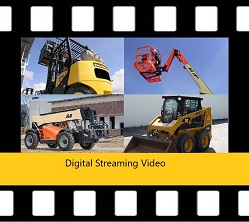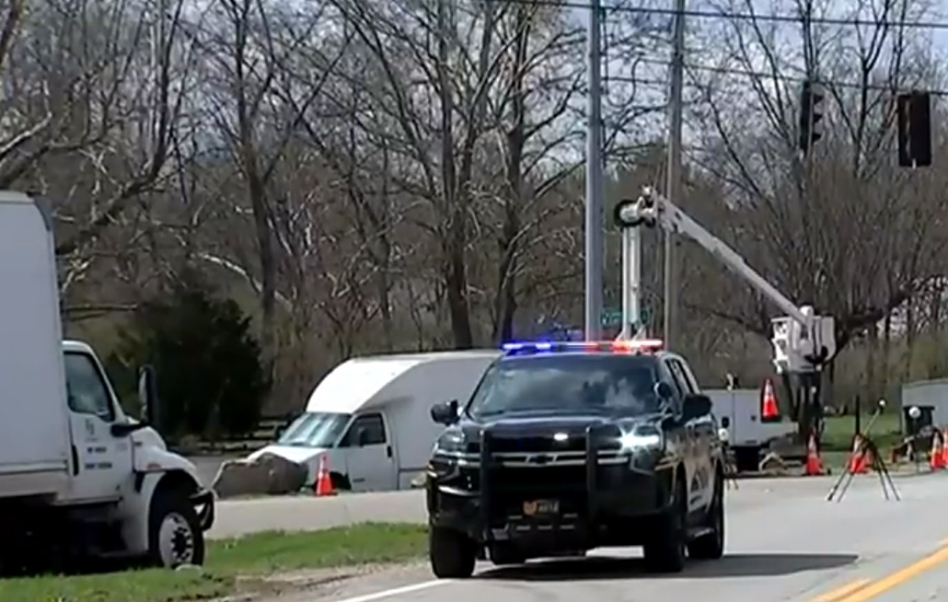Limit Access to Trained Personnel Only

Due to the nature of forklifts and the serious consequences of any associated accidents, it is vital that they are only used by those who have been fully trained to do so safely.
Sadly, numerous accidents happen every year involving untrained personnel as, all too often, people underestimate the risks, with life-changing and costly consequences.
Just last year, a UK company pleaded guilty to breaching health and safety rules after a driver who had not been trained to use a telehandler ran over a colleague, resulting in serious injuries and a $70k USD fine.
Managers need to ensure that only trained operators can access forklifts, as only they will have the ability and understanding to work safely. The good news is there are several control measures that can be implemented to do this and help reduce risk on site.
Remember to refer to your local regulations regarding lift truck operation and training. In the UK, the definitive guide to forklift training and safe use is Approved Code of Practice L117, but legislation will differ around the world, so it is essential to follow the laws and guidance where you are.
Issuing authorization to operate
According to L117, before anyone can operate forklifts on your site, they need written authorization to do so. This should only be given after all relevant training has been completed and should state the operator’s name, date of authorization, types and/or categories of truck and any special considerations — for example, lifting height restrictions.
Authorization should also be specific to the task to ensure everything stays controlled and within the scope of what was covered during training.
Without authorization, no-one should be allowed access to forklift trucks on your site.
Use access controls
Once written authorization is in place, only authorized individuals should be issued access to your lift trucks.
Where physical keys are used, L117 recommends that they are kept in a secure location under the control of a responsible person, and once issued, keys should stay with the operator until the end of the work period.
However, electronic access controls are becoming increasingly popular, for example:
- Pin (Sic) code access: operators must input a code before operating the truck;
- Integrated card reader: the operator swipes a valid badge or card over a sensor.
Such access systems also provide a useful way of tracking where and when trucks are used as part of a fleet management system for greater operator accountability and reviewing any incidents.
Controls like these significantly reduce the risk of unauthorized or untrained drivers operating a vehicle and potentially causing an accident that could significantly cost your operators, their colleagues and your business.
To ensure trained operators understand the procedure on your site, access control measures should be covered in specific job training.
L117 states: “Specific job training should include, where appropriate: safe systems of work, such as custody arrangements to ensure keys are never left in unattended lift trucks, or where they are freely available, to prevent unauthorized operators using them.”
Make trucks safe before leaving unattended
To reduce risk further, trucks that are not in use should be safely parked and shut down – ideally in a secure or supervised area.
Any keys should be removed and returned. L117 also recommends that on LPG trucks, if the truck is to be left for some time, the gas supply should be shut off.
It is here that a manager’s role is key. Those overseeing operations have a responsibility to be vigilant in their supervision, and to ensure untrained operators cannot access unattended lift trucks.
This also extends to visiting drivers. Managers should be sure to assess operating standards and qualifications before allowing visitors or contractors to use lift trucks on site, and make it clear that they can only operate with authorization.
Equip managers with knowledge and confidence
To uphold safety on site, managers must be able to recognize the risks associated with forklift operation, including the importance of access controls.
If those responsible are in any doubt, there are dedicated training courses available that provide managers and supervisors the skills to proactively and effectively oversee forklift use, including monitoring and providing authorization to operate.
Such training will aid managers in communicating a clear message to staff: forklift trucks are extremely dangerous if operated incorrectly, and unauthorized use is strictly forbidden.
Product Feature: Enhanced Safety Training Videos

We are pleased to announce that our videos are in the process of being digitally remastered for a crisper, high-definition image!
Currently, our Introduction series of videos is being updated and so far we have released Counterbalanced Forklift, Narrow Aisle Forklift, Rough Terrain Telehandler, Scissor Lift, Aerial Boomlift, powered pallet truck and skid steer loader.
Our safety training videos are available for a variety of equipment including forklifts, mobile elevating work platforms and loaders.
Each video is professionally produced and is of the highest quality and technical accuracy.
All IVES-produced videos excel at conveying sound principles of safe operation to operators in a positive manner without relying on gory footage or other negative methods.
More titles will be updated and available soon.
¿Hablas español? Select videos are also available in Spanish.
Incident Report: Construction company fined $23K for telehandler accident.
The remaining charges were withdrawn in territorial court on Friday afternoon.
The fine represents a $20,000 penalty plus a $3,000 victim-of-crime surcharge.
An agreed statement of facts set out the circumstances of the incident: the worker, a man with some 40 years’ experience in construction, and a colleague were working to install a steel handrail at a First Nation’s office.
“To save time and effort,” the statement reads, the two decided to lift the handrail through a second-floor window rather than bring it through a boarded-up main door on the ground floor.
According to the statement, a fresh field-level risk assessment for the activity was not completed, “nor did Arctic ensure [employees] prepared a lift plan prior to making the decision to attempt to lift the handrail.”
The employee was wearing an approved safety harness with lanyard, but forgot to attach the lanyard to the telehandler’s basket while raising the handrail to the window, 14 feet above.
Outriggers to stabilize the telehandler were not deployed and the handrail was not affixed to the basket.
With the man about 10 feet up, the telehandler’s rear wheels left the ground, the basket came down and the man was thrown out of it, with the handrail landing on his leg.
While he was released from Fort Simpson’s medical clinic “without significant injury other than some soreness and bruising,” the statement reports that the man was off work for approximately three months following the incident.
The statement of facts asserts that the decision to lift the handrail using the telehandler “was a spur-of-the-moment decision which was not properly planned.”
What happened was attributed in part to “the failure of Arctic to ensure a competent and trained supervisor was overseeing the lift.”
The Workers’ Safety and Compensation Commission issued eight orders to the company, which has “since amended work practice and procedures” and cooperated with WSCC safety officers throughout, the statement concludes.
The fine must be paid by April 24.
Ask Bob

Free technical support for all IVES Certified Trainers!
Question:
Hi Bob,
I'm about to do my first training for standard forklifts. Two of the guys are brand new and two of the guys are needing refresher training.
My question is about the differences for the refresher training vs.original certifications. What packet/homework am I supposed to give to the refresher students. Or would it just be easier to put them through the whole course as if they were new? I don't think their previous training was done through IVES anyways. Please advise.
Answer:
Thanks for checking in with us.
In my opinion, I would throw the 2 operators in need of a requalification with the 2 new ones and do a complete “Initial Training” course, especially since you can’t verify the previous training of the two guys that are already qualified.
That way everyone is on the same page, same documentation and they can probably all be done in a day.
However, if you separate them, then it is 2 different classes, initial and requalification, you have to put on and then conduct practical evaluations thereafter, and you still won’t have the documentation of initial training that was done with the two previously qualified operators.
Also, don’t forget to download the lesson plan for standard forklift operators ( LPO-013 ) from your member Dashboard on our website.
This lesson plan covers the details of how to cover the Operator Reference Manual, administer the written tests and conduct practical evaluations.
Bob
Interesting Articles
- Two quarry workers crushed to death after Excavator topples...more.
- Worker loses foot in forklift accident...more.
- Police shoot man after he crashes into vehicles with skid-steer loader [VIDEO]...more.
- Man dies after being electrocuted in Scissor Lift...more.
- Excavator operator shows off impressive operating skills [VIDEO]...more.
- Woman killed after being hit by forklift carrying a vehicle...more.
- Manufacturer fined over fall protection safety lapse...more.
- Man falls from platform and survives thanks to his harness...more.

Client Testimonials

"Everything was great, the materials were useful, practical and easy to understand. I highly recommend this course. Whether you’re going through to become an operator or trainer, use IVES!."
Daniel, Custom Train the Trainer Program.
"It was above and beyond what I was hoping for. Loved the program, feel more ready for my position than I have before. Really feel like I gained a lot of knowledge and confidence." Brittany, Premium Combo Train the Trainer Program.
"Your training materials have steadily gotten better through the years. Your training has never become outdated. Your materials are well designed and engaging. Your presenters exude passion for the safety of equipment operators. Thank you. IVES continues to provide excellent training!" Darrell, Online Trainer Recertification.